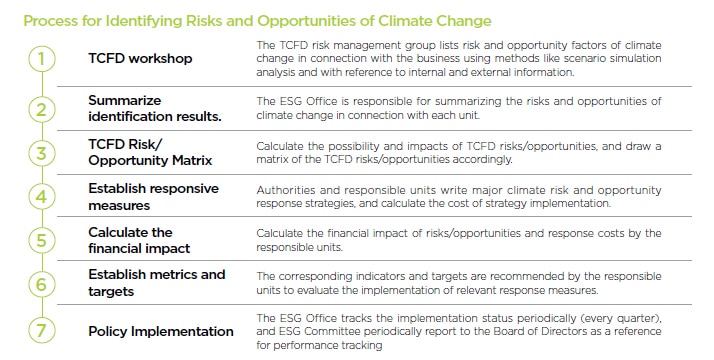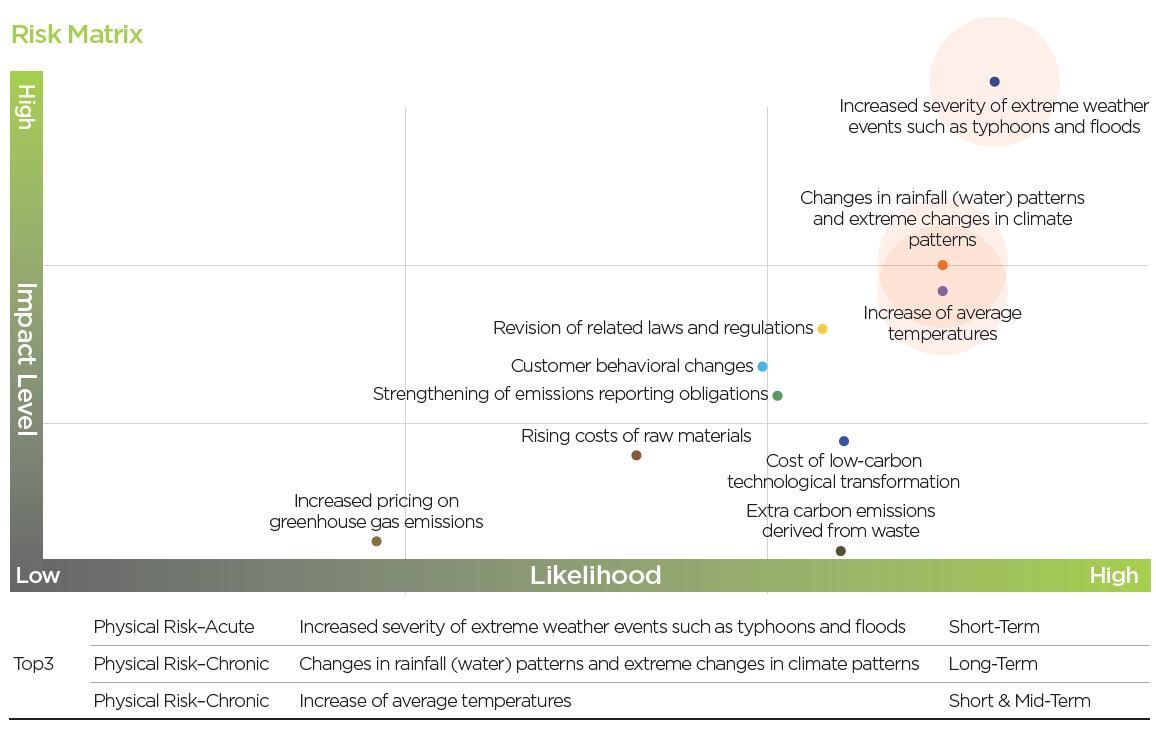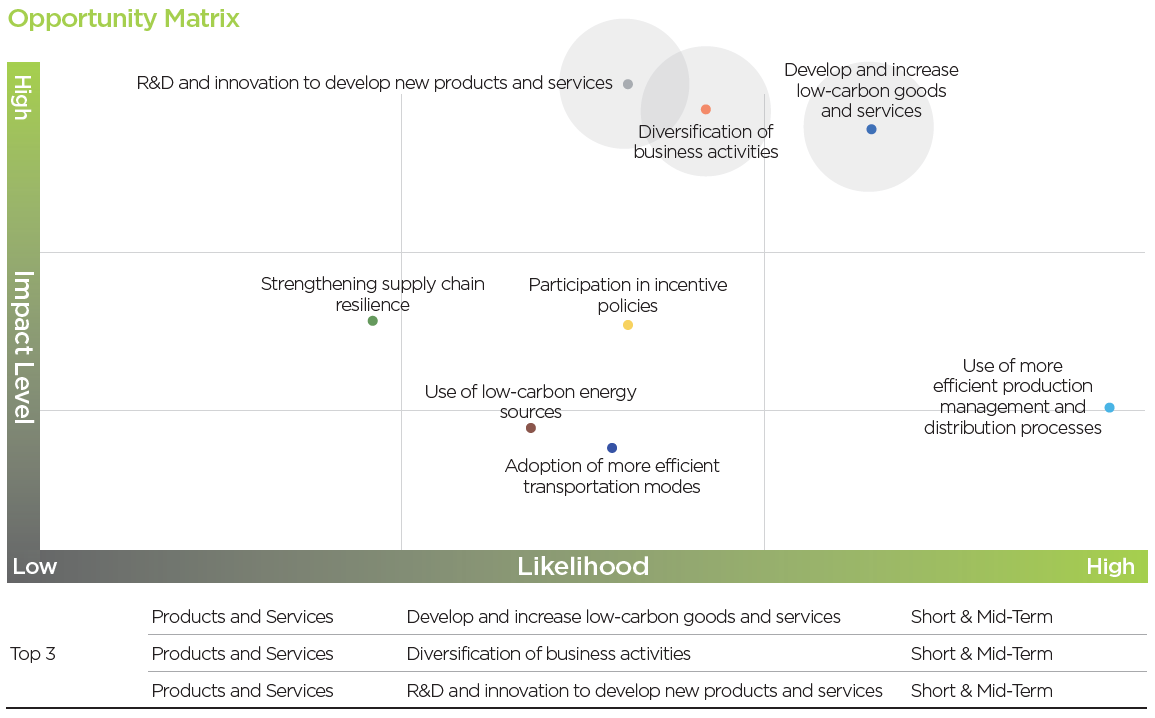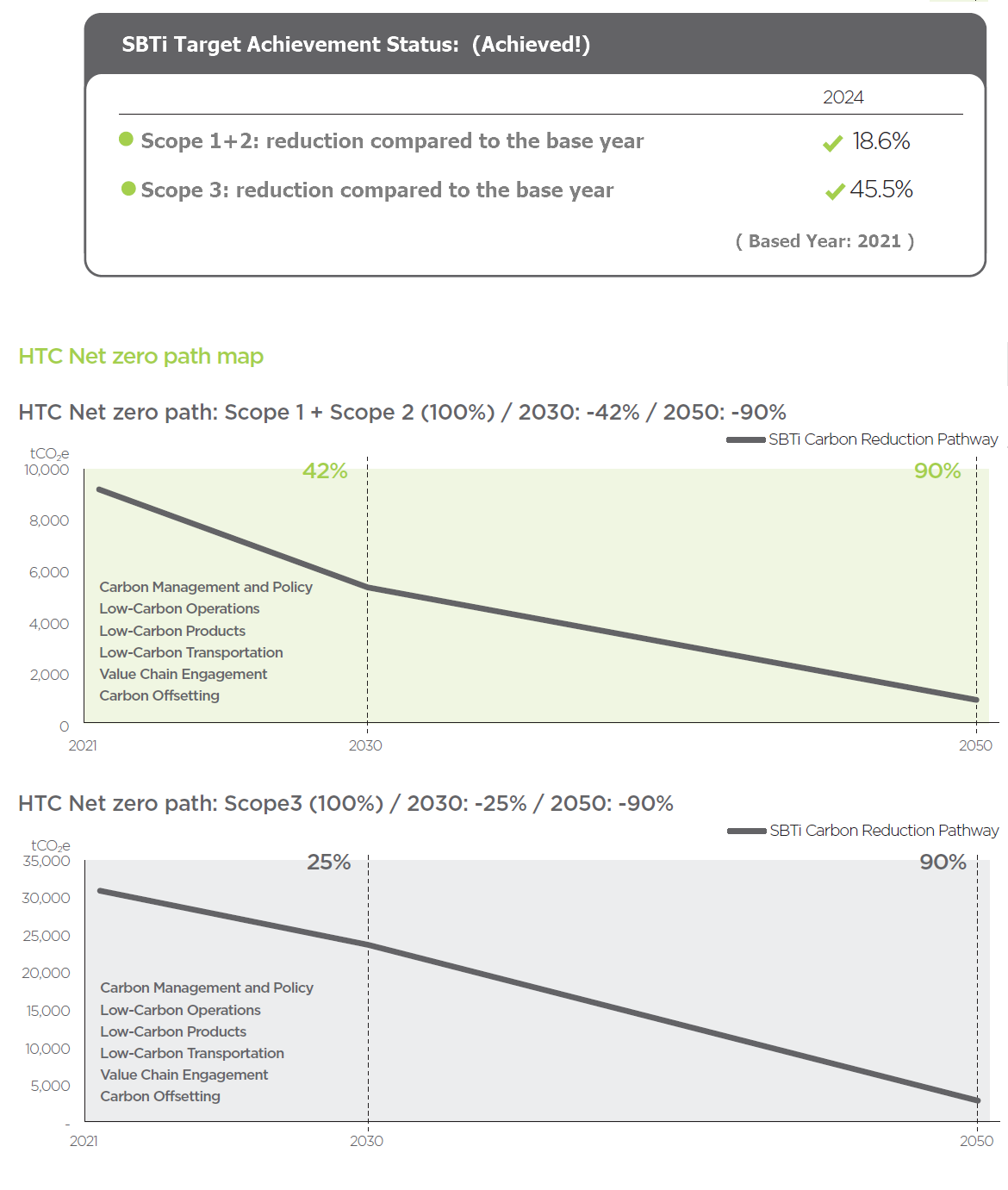Climate Change Management
HTC leverages its professional expertise in mobile technology and continuous pursuit of product innovation by integrating climate change elements into the VIVERSE vision. This commitment aims to provide comprehensive solutions for businesses and society, creating richer life experiences. To enhance the company's governance of climate change and mitigate threats posed by it, we have incorporated the Task Force on Climate-related Financial Disclosures (TCFD) framework into our management scope. The ESG Committee has designated members to form a TCFD Risk Management Group, which regularly assesses and identifies relevant risk and opportunity factors, analyzing potential future transition and physical risks and opportunities, and actively responding to related impacts.
We have established a risk framework based on four core elements: "Governance," "Strategy," "Risk Management," and "Metrics and Targets." Additionally, we adopt the Science Based Targets initiative (SBTi) methodology to conduct comprehensive carbon emissions analysis, calculation, and assessment, and we have developed a net-zero carbon pathway, along with corresponding short-, medium-, and long-term carbon reduction strategies and management indicators to tackle the challenges posed by climate change.
HTC released its first independent TCFD report in 2023 and won the highest level of "Pioneer" in SGS-TCFD performance assessment for two consecutive years in 2024 and 2025.
( TCFD Report )
Climate Governance
The governance and management structure for climate change at HTC is led by the Board of Directors, which is responsible for final decisions and reviews. Under it, the ESG Committee is tasked with executing decisions related to climate change management. Led by the Chief Sustainability Officer, the ESG Committee is responsible for executing the climate change management policies and major resolutions reviewed by the Board. It integrates resources and progress across departments for climate actions and conducts a comprehensive assessment of climate change risks alongside other company risks.
Designated members of the ESG Committee form a TCFD Risk Management Group to participate in projects. The ESG Office is responsible for continuously tracking and reviewing the achievement of various climate change-related initiatives, while also monitoring the latest climate governance policies and industry practices domestically and internationally to adjust climate risk assessment analysis results. The ESG Office regularly reports on related issue trends, impacts, and execution performance to the ESG Committee, which in turn reports these actions to the Audit Committee annually. The Chief Sustainability Officer also regularly reports to the Board of Directors.
The ESG Office is in charge of the company's overall "greenhouse gas inventory and verification schedule planning," with progress reported quarterly to the Board to ensure continuous progress in climate change governance.
Strategy
For each climate change risk and opportunity, HTC considers the impact of products or services, supply chain or value chain, climate adaptation or mitigation activities, new R&D or investment, and the type of business operation or the location of business operation facilities. Conduct impact assessment, and carry out climate "mitigation" and climate "adaptation" coping strategies for possible shocks. Based on the identified risk/opportunity items, HTC estimates the financial changes that climate change may cause to HTC, and develops various risk response strategies, evaluates and estimates "management costs" and "management benefits", based on each risk/ The short-, medium- and long-term characteristics of opportunities, and the estimated impact of climate change risks/opportunities on HTC's finances.
Risk Management
To strengthen corporate governance, achieve stable operations, and promote sustainable development, HTC has established "Risk Management Policies" for various types of risks and set up dedicated units responsible for executing the company's risk management and measurement tasks, thereby establishing a sound risk management mechanism. The ESG Office is in charge of managing the company's climate change and ESG-related risks and coordinates the TCFD risk management team to carry out related tasks. The risk management organizational structure has the Board of Directors as the highest decision-making body, with an ESG Committee responsible for reviewing risk management policies and management reports on material risk topics.

Three high-risk factors and three high-opportunity factors in HTC have been identified. The climate change risks matrix and climate change opportunities matrix are shown in the following diagram.
Climate change risk matrix

Climate change opportunity matrix

Metrics & Targets
HTC has committed to the Science Based Targets initiative (SBTi) in 2024, setting the company's greenhouse gas reduction and net-zero carbon emission targets based on the carbon reduction guidelines and methodologies published by SBTi, with the goal of achieving net-zero emissions by 2050. By linking its core business with comprehensive quantitative management, HTC has developed a clear carbon reduction path that includes six major strategies: "Carbon Management and Policies," "Low-Carbon Operations," "Low-Carbon Products," "Low-Carbon Transportation," "Value Chain engagement," and using "Carbon Offsetting" as a last resort. This multifaceted approach is designed to move towards the net-zero target by 2050. For more details on carbon reduction metrics and targets, please refer to the
TCFD Report
